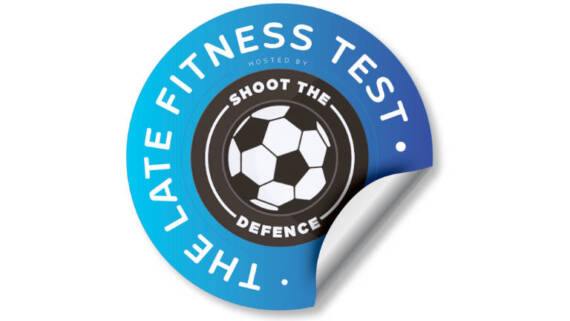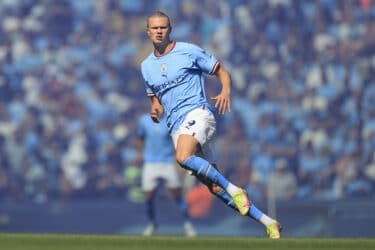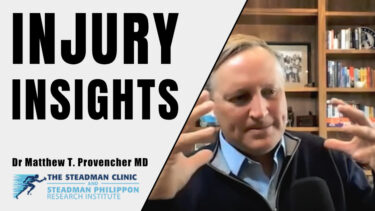On episode seven of the Late Fitness Test podcast – in association with Shoot the Defence – myself, Johnny Wilson (@johnny_wilson5) and Stel Stylianou (@UncleStel) analyse the injury data from the opening weeks’ of the new Premier League season and explore why the number of reported incidences has increased in recent years.
- We discuss Callum Hudson-Odoi’s impending first-team return (⏱️ 12:00m). The winger underwent surgery in April after rupturing his Achilles at Watford in the Premier League five months ago.
“Generally, they repair pretty well, and then it comes down to how rigorous the rehab is after that. The tendon doesn’t like rest, it’s probably the worst thing you can do, so tendons they respond to load.”
- Newcastle United defender Florian Lejeune is closing in on a comeback after suffering a second serious knee injury within the space of 12 months. We look at the research carried out by a Scandinavian group led by Hege Grindem in 2016 and why his setback came as no surprise.
The nine-month rule. (⏱️ 16:00m)
“Athletes who return to their level of sport before nine-months are nearly five times more likely to re-injure the knee or suffer an injury to the other knee. And every month that you wait after nine months, your risk of recurrence goes down by 51 per cent each month.”
- Lejeune made a remarkable return-to-play for the Under-23s after only 140 days but ruptured the ACL in his opposite knee less than five months later.
“I’d be surprised if he didn’t have a recurrence, for a number of reasons……… We are rushing these players back because there’s a huge amount at stake.”
Debunking the Miracle Doctor myth (⏱️ 25:00m)
- Following the news that Manchester United full-back Diogo Dalot spent 10-days in China with Super League side Shanghai SIPG and Head of Medical – Eduardo Santos – we look at what, if anything, is so special about these go-to clinicians.
“All you need is one very high-profile player in the dressing room saying to the guy beside him, ‘You need to go-to X, he’s the Miracle Guy’. And then, two players go there; three players go there, four players go there and all of a sudden you have this reputation of being in the right place at the right time and being known as the Miracle Guy.”
There is absolutely nothing out there that is going to speed up recovery. You must:
- Protect from re-injury.
- Give it the right environment to grow and heal properly.
- Time. There are no miracles. There is no magic pill. You’ve got to do the work.
And finally.
The FIFA Technical Report from 2018/19 Champions League tournament. (⏱️ 33:00m)
- Premier League players have recorded the Top Three fastest speeds in the competition for two years running while the number of sprints overall more than doubled in 2018/19.
Are increases in injury incidence rates indicative of players reaching their ceiling point?
We talk:
- Recruitment – and how the genotype of a player – has changed over the previous decade as the game continues to evolve.
- Are we conditioning players with enough speed work to help them tolerate this new game?
- Responsibility and ownership.
- Does football need to become more ruthless at an early age?
“It comes down to a little bit like gymnastics where they weed out the weak very, very early. You either can cope with gymnastics, or you get injured, and if you get injured, you get thrown away. And in a lot of ways, football has to become a bit more ruthless because of the amount of money that’s there…”
Have a listen; we would love to hear your thoughts!


🎙️Audioboom https://audioboom.com/posts/7365759-the-late-fitness-test-season-2019-2020-episode-7
🗣️Spotify https://open.spotify.com/episode/01NNYc6IJLQIKmPZbIR51Q



